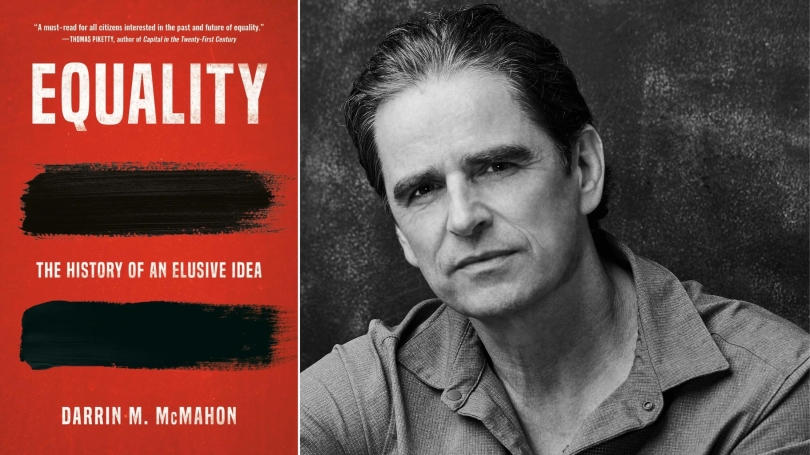
- About
- Departments & Programs
- Faculty Resources
- Governance
- Diversity
- News
Back to Top Nav
Back to Top Nav
Back to Top Nav
Back to Top Nav
The history professor will receive the prestigious award for his new book, Equality: The History of an Elusive Idea.
History professor Darrin McMahon has been awarded the 2024 Jacques Barzun Prize in Cultural History for his recent book, Equality: The History of an Elusive Idea.
The prestigious prize is awarded annually by the American Philosophical Society, the oldest learned society in the United States, to an author whose book "exhibits distinguished work in American or European cultural history." The prize honors the historian Jacques Barzun, who helped establish the modern discipline of cultural history.
"In our field of history, the Jacques Barzun Prize is the equivalent of winning the Pulitzer—and Darrin couldn't be more deserving of this prestigious honor," says professor Cecilia Gaposchkin, acting chair of the Department of History.
Praised as "a landmark work of intellectual history" by Literary Review and "sweeping" and "thought-provoking" by the Washington Post, Equality traces its global origins from the dawn of humanity to today.
McMahon, the David W. Little Class of 1944 Professor of History, views Equality as a sequel to his prior two books on the history of happiness and the modern fascination with genius. "Equality seemed like a perfect way to complete the trilogy," he said in an Arts and Sciences Q&A about the book. "Like happiness and genius, it's a big powerful idea with a long history that emerges spectacularly in the 18th century. But I didn't realize what I was biting off when I began. When you ask the question, 'What is equality?' you immediately have to ask, 'Equality of what? And for whom?'"
McMahon says he finds the prize particularly meaningful because "although it is nominally a history prize, it is effectively an interdisciplinary award in the history of ideas, reflecting Barzun's own broad intellectual interests," with a jury made up of people from different fields. "This is consistent with my own sense of my work, which draws on numerous disciplines and fields."
He also takes pride in joining a number of admired colleagues who received the award in prior years, including some of his "intellectual heroes" from a range of disciplines. "It is really nice to be in their company," he says.
The 2024 Barzun Prize will be presented at the American Philosophical Society's November meeting.